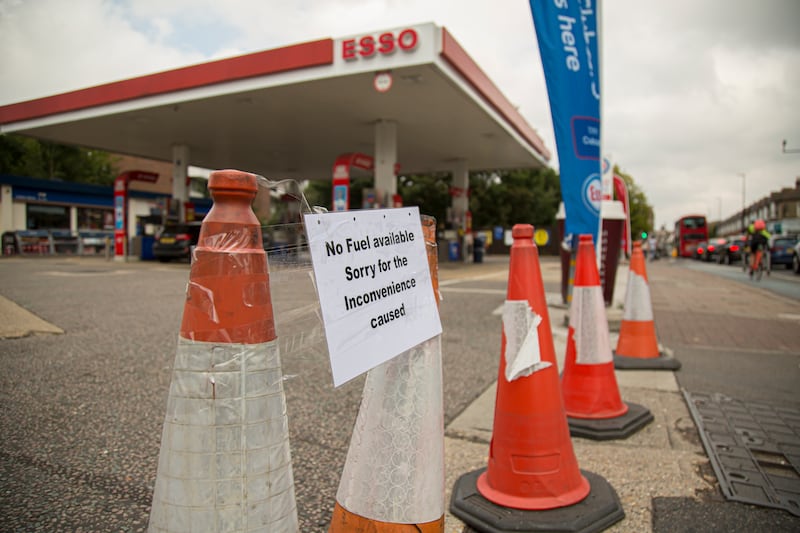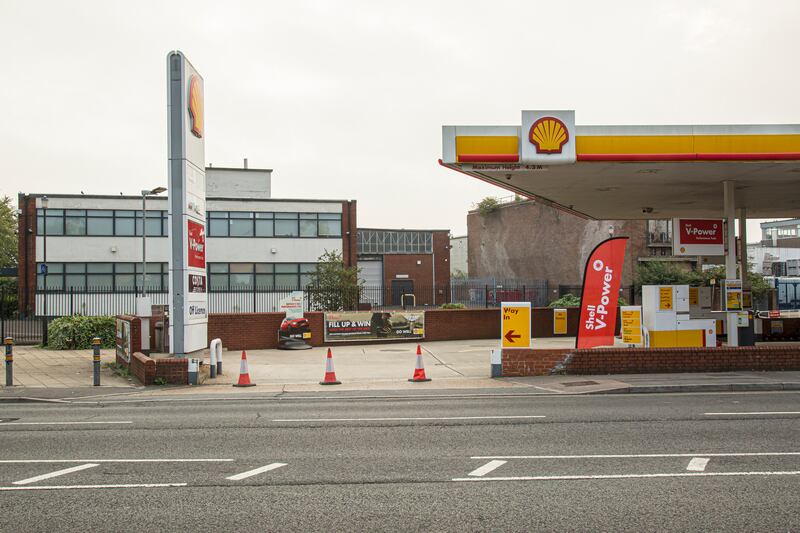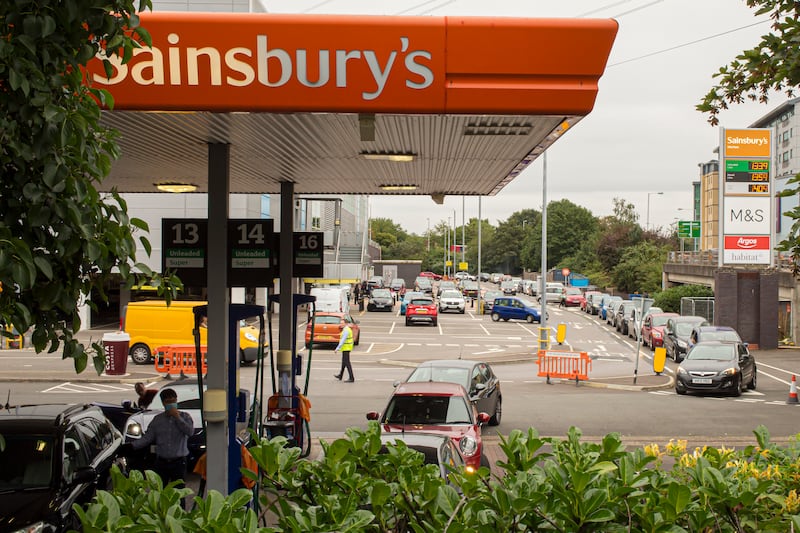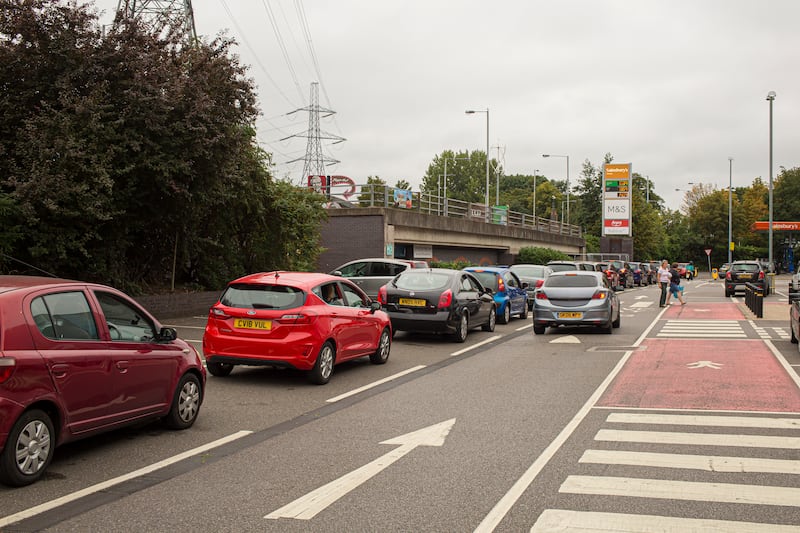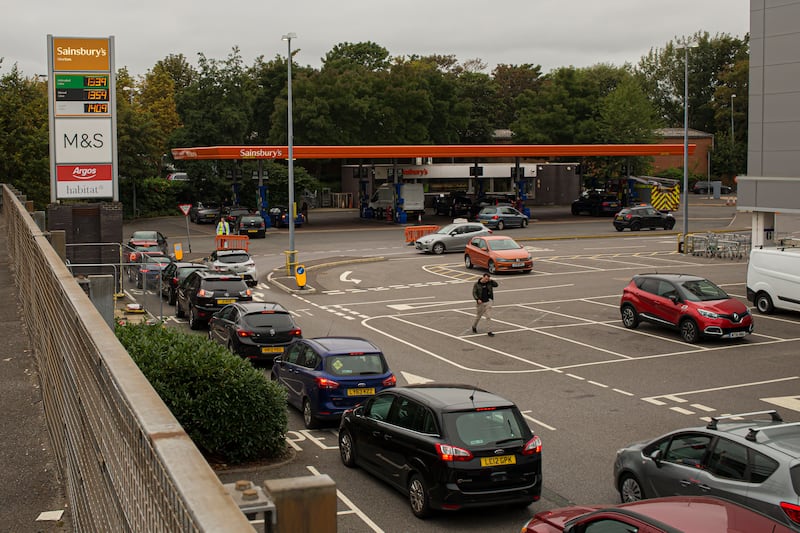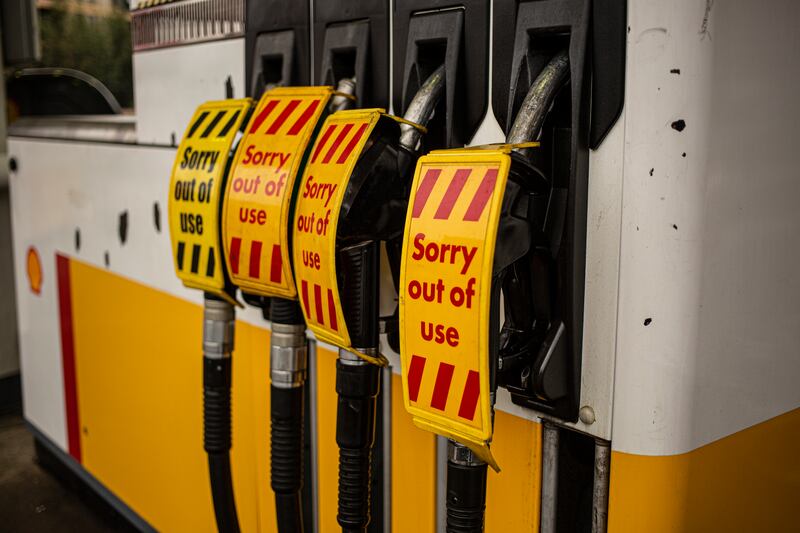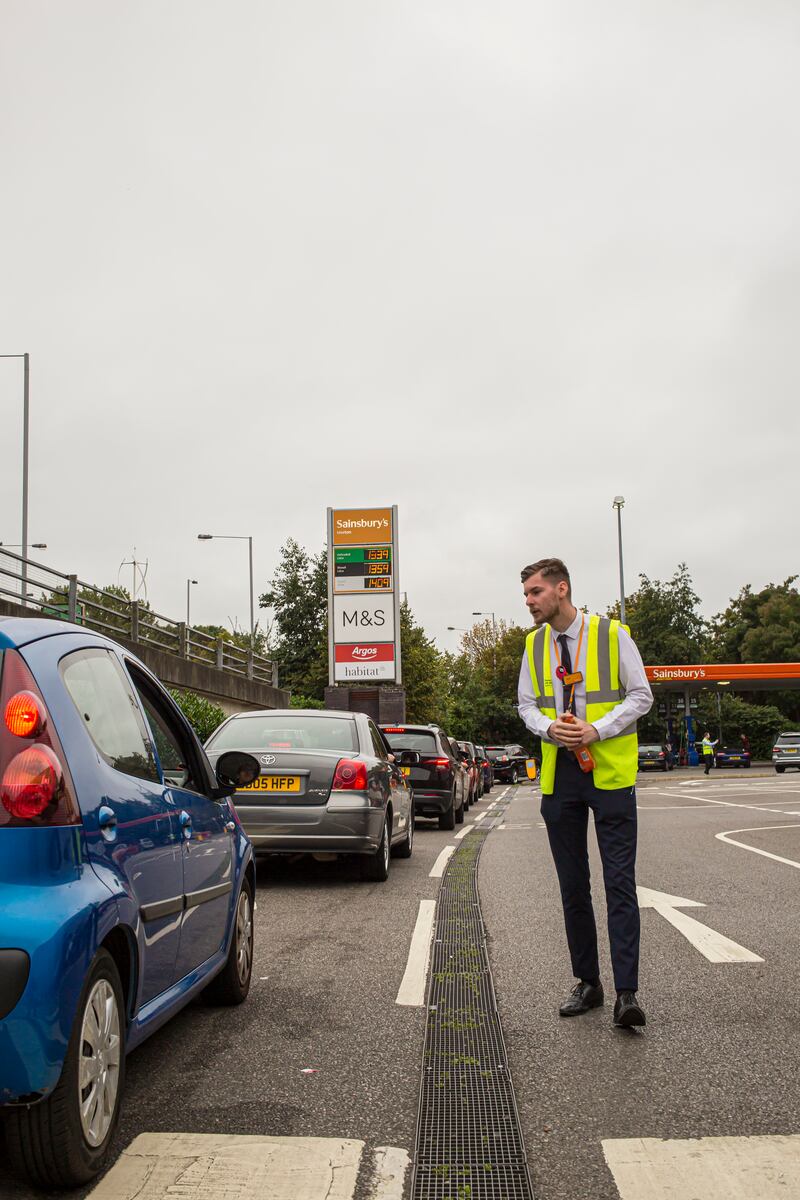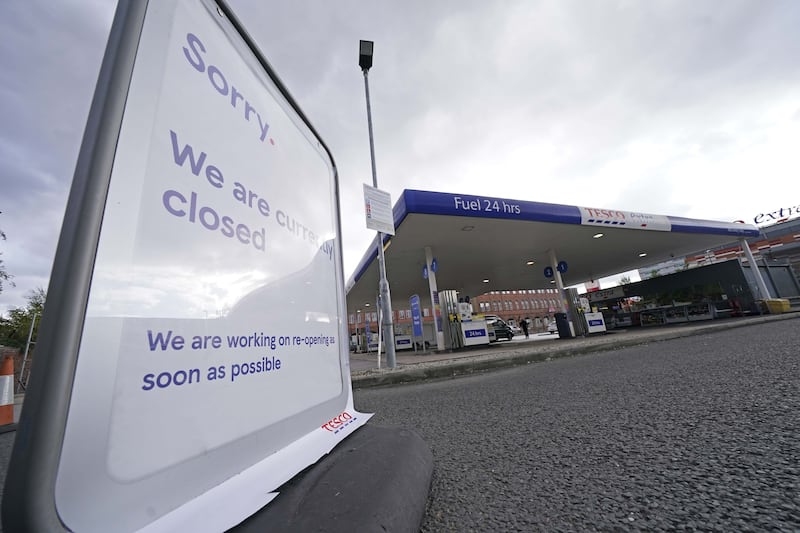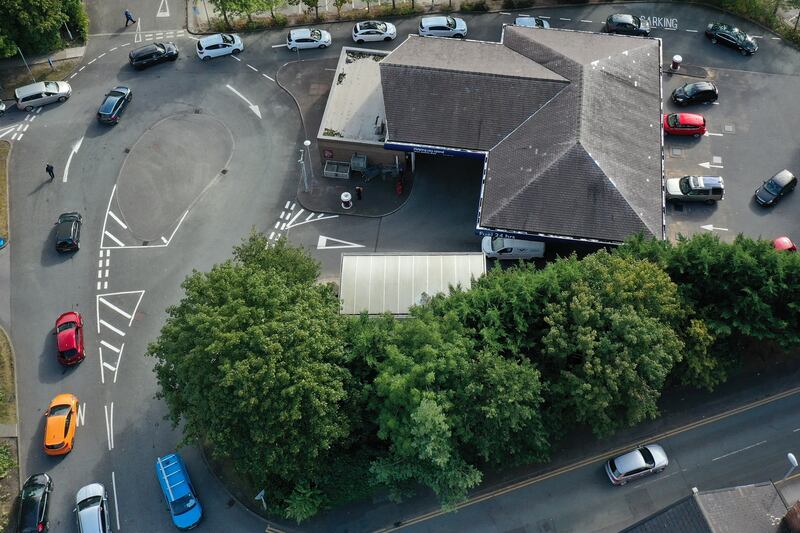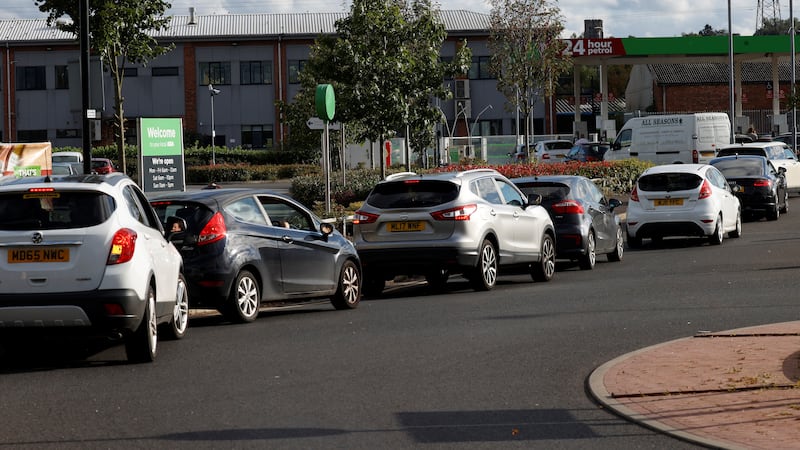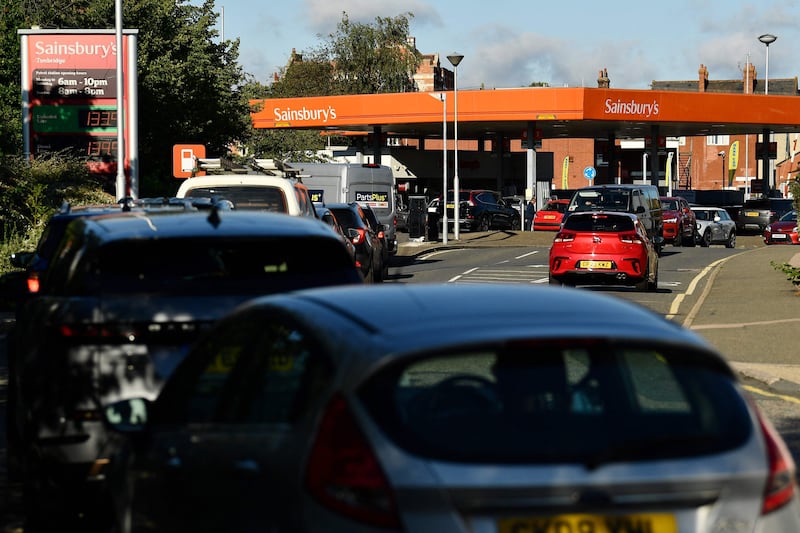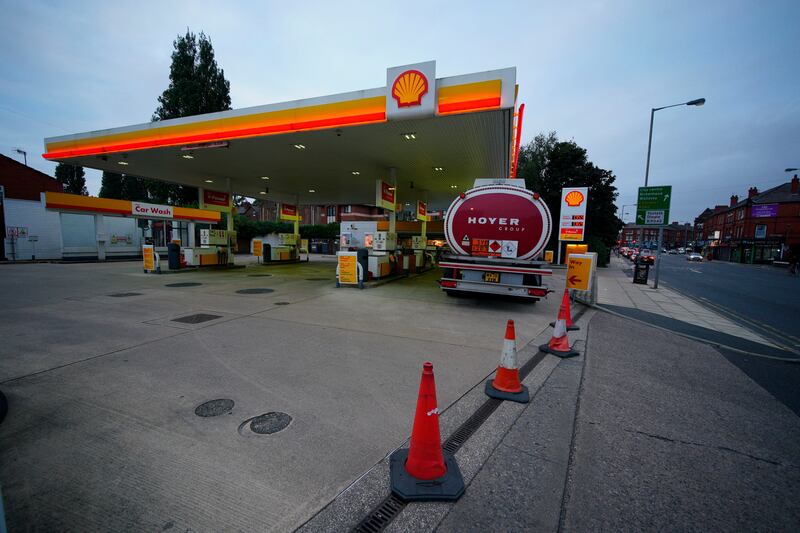Panic buying continued throughout Britain’s petrol forecourts on Saturday, prompting an industry chief to say “a lot of people are going to go without fuel”.
“This could be emergency services, it could be deliveries to supermarkets, it could be NHS [National Health Service] workers, doctors, firemen, people who have really serious jobs that need 24-hour requirements for fuel,” Brian Madderson, head of the Petrol Retailers Association, told Sky News.
“I think this situation is going to get worse before it gets better.”
So does UK Prime Minister Boris Johnson, it would seem. On Saturday, a government spokeswoman said 5,000 short-term visas would be issued to mitigate the lorry driver shortage that kick-started the fuel rush.
“We have ample fuel stocks in this country and the public should be reassured there are no shortages,” she said.
Yet repeated attempts by authorities to spread calm and urge against panic buying have had the opposite effect.
For two days, petrol stations across the length and breadth of the UK have been clogged by cars, day and night, as motorists clamber to fill up their tanks in the fear supplies are running low.
BP said about 20 of its petrol stations were closed, with between 50 and 100 others running out of at least one grade of fuel.
Esso, which is owned by ExxonMobil, said a small number of its 200 Tesco Alliance retail sites had been affected.
Mr Madderson said a government media leak on BP’s earlier decision to restrict fuel deliveries to about 100 of its 1,200 stations had been largely responsible for the mayhem.
“That leak to a broadcaster has brought about the quite catastrophic situation we’re now in, where there is panic buying,” he said.
UK fuel shortage a mirage
The head of the AA motoring association, Edmund King, said panic buying was completely unnecessary and driving the fiasco, not the shortage of lorry drivers.
Last week, Mr King told the BBC the lack of drivers was a “localised problem”.
“We were in discussions with government ministers last night, and we talked to the major fuel companies, and we can reiterate that there is not a problem with supply at the source.”
He expressed optimism the crisis will calm because motorists cannot stockpile fuel as they can with other goods. A run on household essentials such as toilet paper led to empty shelves in the early weeks of the pandemic.
“The good news is you can only really fill up once. You’ve got to use the fuel, so this should be a short-term thing,” he said.
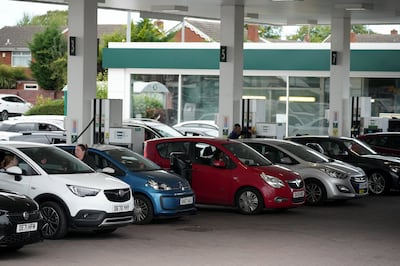
Although Mr King believes the shortage of people qualified to drive heavy goods vehicles is a red herring, industry groups such as the Road Haulage Association have been calling for months for a temporary worker visa to be set up to offset the dual headwinds of Brexit and the pandemic.
Any such measures will be “very strictly time limited”, Mr Johnson’s spokeswoman said.
Improve working conditions to alleviate shortage, says Labour
The opposition Labour Party called for better working standards so companies would find it easier to retain staff.
“Employers are now finding it incredibly difficult to retain the staff that they need and to skill them up,” deputy leader Angela Rayner said.
“This was coming down the tracks and the government haven’t done anything to address it, and we now face this crisis.”
The supply chain problems have raised fears of disruption in the run-up to Christmas, with time in which to train more lorry drivers slipping away.
